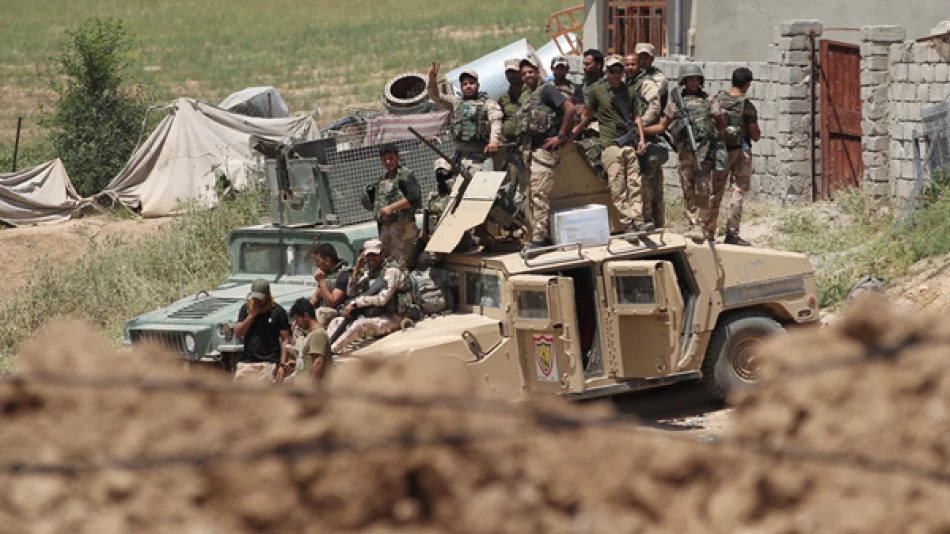
Iraq Apprehends Suspected ISIS Militant in Counter-Terrorism Operation
Iraq's Counter-Terrorism Forces Score Major Victory Against ISIS Remnants
Iraqi counter-terrorism units, backed by international coalition advisors, successfully captured a high-value terrorist target in a precision airdrop operation north of Baghdad. The arrest highlights Iraq's continued efforts to dismantle remaining ISIS cells and demonstrates the evolving effectiveness of Iraqi-led security operations with reduced foreign military dependence.
Strategic Operation Targets ISIS Leadership
The Counter-Terrorism Service announced that the operation took place Wednesday evening in the Sarhid al-Matar area, located on the boundary between Kirkuk and Salah al-Din provinces. This geographic positioning is significant—the region has historically served as a corridor for militant movements between Iraq's northern and central provinces.
The captured individual represents a particularly valuable target, having previously operated with Al-Qaeda before transitioning to ISIS during the group's territorial expansion. Security forces recovered weapons, communication devices, and other materials during the arrest, suggesting active operational planning rather than mere hiding.
Intelligence-Driven Success
Iraqi officials emphasized that the operation relied on precise intelligence gathered by domestic counter-terrorism units, marking a shift from the heavy foreign intelligence dependence that characterized earlier anti-ISIS campaigns. This development signals Iraq's growing autonomous capability in tracking and neutralizing terrorist networks.
Broader Security Implications
The arrest occurs amid Iraq's broader campaign to eliminate ISIS remnants who have adapted to guerrilla tactics following the group's territorial defeat in 2017. Unlike the large-scale military operations of previous years, current counter-terrorism efforts focus on targeted strikes against individual high-value targets and small cells.
The Kirkuk-Salah al-Din border area remains strategically critical due to its complex terrain and historical significance as an ISIS stronghold. The group's remnants have exploited security gaps in these boundary regions, making successful operations there particularly impactful for overall security.
Coalition Partnership Evolution
The operation's structure—Iraqi-led with coalition advisory support rather than direct participation—reflects the international coalition's transition toward a supporting role. This model aligns with Iraq's push for greater security independence while maintaining access to advanced intelligence and logistical capabilities.
Regional Security Context
Iraq's counter-terrorism successes come as regional governments intensify efforts against ISIS affiliates across the Middle East. Similar targeted operations in Syria and ongoing security campaigns in West Africa demonstrate the global nature of post-caliphate counter-ISIS efforts.
For Iraq specifically, these operations serve dual purposes: eliminating immediate security threats while demonstrating governmental capability to domestic and international audiences. Success in counter-terrorism operations remains crucial for Iraq's broader political stability and economic recovery efforts.
The suspect now faces interrogation and eventual prosecution through Iraq's specialized terrorism courts, which have processed thousands of ISIS-related cases since 2017. This legal process will likely yield additional intelligence on remaining network structures and operational capabilities.
Most Viewed News

 Layla Al Mansoori
Layla Al Mansoori






